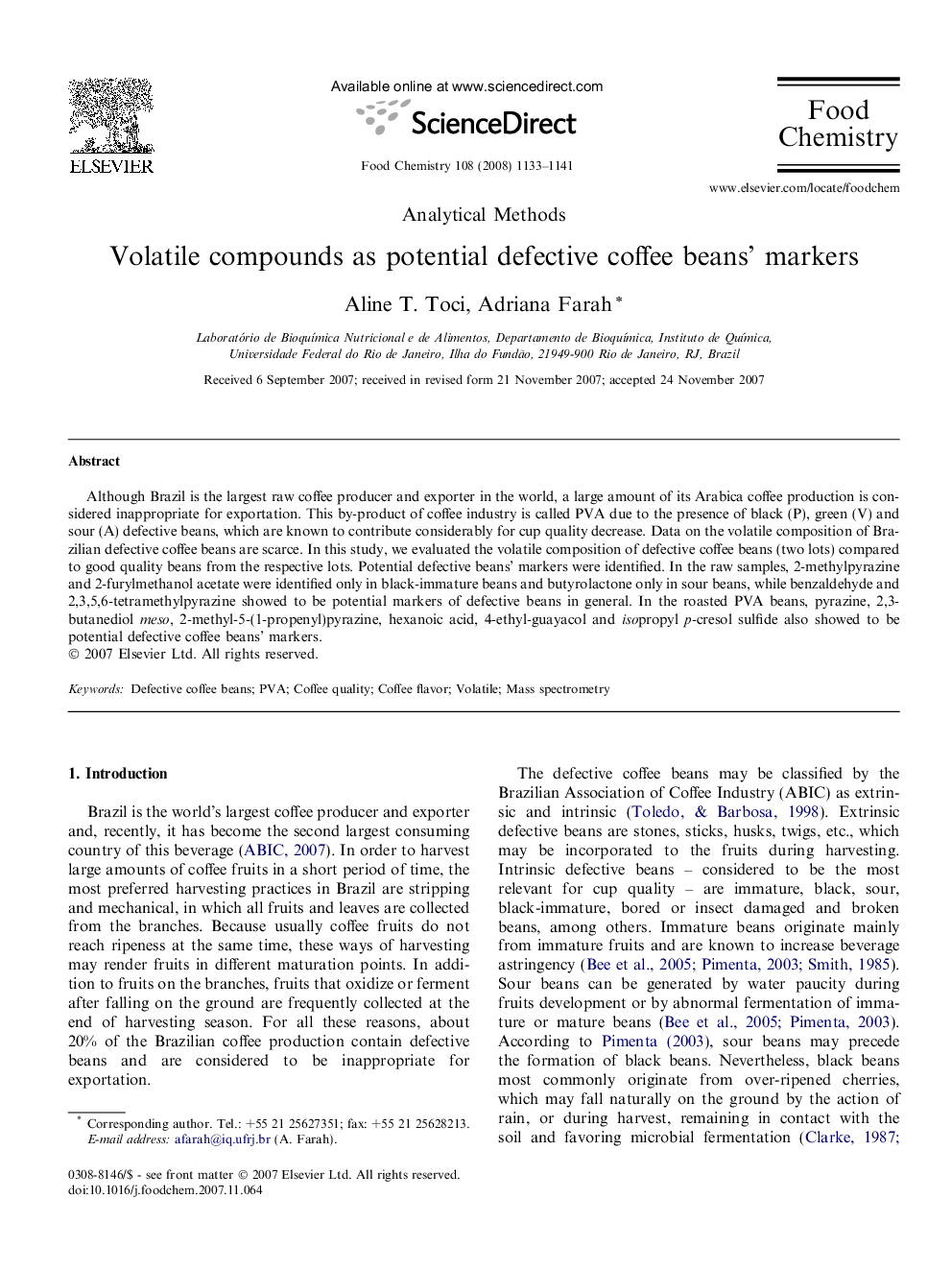| Article ID | Journal | Published Year | Pages | File Type |
|---|---|---|---|---|
| 1187344 | Food Chemistry | 2008 | 9 Pages |
Although Brazil is the largest raw coffee producer and exporter in the world, a large amount of its Arabica coffee production is considered inappropriate for exportation. This by-product of coffee industry is called PVA due to the presence of black (P), green (V) and sour (A) defective beans, which are known to contribute considerably for cup quality decrease. Data on the volatile composition of Brazilian defective coffee beans are scarce. In this study, we evaluated the volatile composition of defective coffee beans (two lots) compared to good quality beans from the respective lots. Potential defective beans’ markers were identified. In the raw samples, 2-methylpyrazine and 2-furylmethanol acetate were identified only in black-immature beans and butyrolactone only in sour beans, while benzaldehyde and 2,3,5,6-tetramethylpyrazine showed to be potential markers of defective beans in general. In the roasted PVA beans, pyrazine, 2,3-butanediol meso, 2-methyl-5-(1-propenyl)pyrazine, hexanoic acid, 4-ethyl-guayacol and isopropyl p-cresol sulfide also showed to be potential defective coffee beans’ markers.
